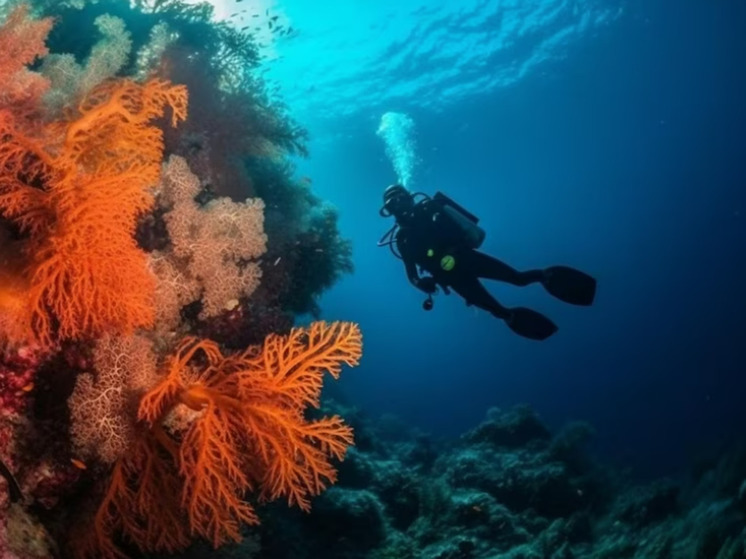Scientists investigate the DNA of a mysterious underwater find
A mysterious golden skin-like ball has been found on the ocean floor off the coast of Alaska. Scientists are analyzing the DNA of a mysterious object that could be the egg of an unknown sea creature or a sea sponge.

A mysterious golden ball that may be an egg laid by an unknown sea creature has been discovered on the ocean floor off the Pacific coast of Alaska, writes The Guardian.
A smooth object with an intriguing hole in the center was discovered at a depth of about two miles by a remote-controlled submarine explorer.
The scientists at the National Oceanic and Atmospheric Administration (NOAA) in the US who made the discovery suggest that it could be someone's egg or a sea sponge.
Researchers are running tests and DNA analysis to figure out what the shiny object is, which feels like «skin tissue» to the touch, according to Noaa.
A remote-controlled hand was deployed to «tickle» the egg-shaped object, which turned out to have a delicate «skin-like» texture. It was then carefully “sucked off” through a tube for testing in the laboratory. The dive is part of the Seascape Alaska 5 expedition, which will last until September 15 and will be followed live.
The mission explores the Gulf of Alaska up to four miles deep, including deep sea coral and sponge habitats, as well as geological features such as mud volcanoes, according to The Guardian.
Team members have proposed theories about the object's identity, including that it is an egg shell or a sponge. They speculated that the hole in it was created by a hatched creature or a predator getting in.
“I just hope that when we poke it, nothing decides to come out,” said one scientist. “It's like the beginning of a horror movie.”
In pictures taken from the bottom of the ocean, the object had a golden hue, but this was attributed to the reflection from the submarine's headlights. A lab photograph of the object shows its brown-yellow color.
Several species, including deep-sea fish such as sharks, lay their eggs on the sea floor, making them less likely to be washed away by ocean currents. Sponges are simple aquatic animals with a dense, porous skeleton that attaches itself to rocks, writes The Guardian.
Kerry Howell, professor of deep sea ecology at the University of Plymouth, said: “When you see this, it makes you excitement and you ask: «Where did it come from?»»


